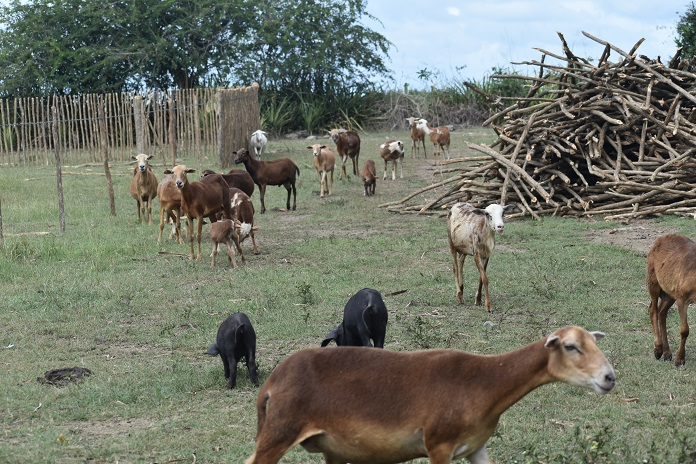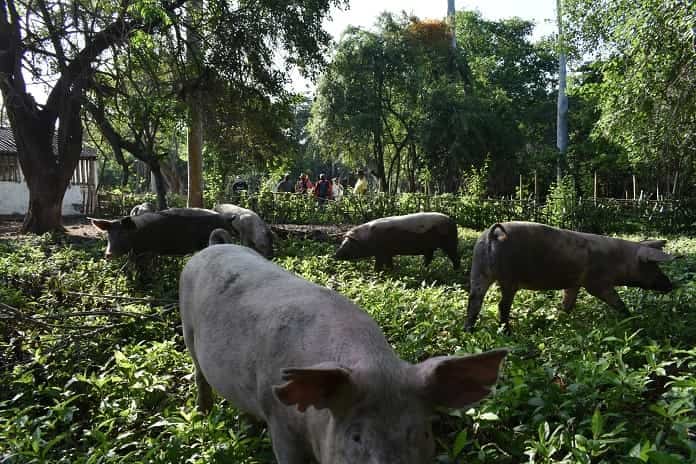
Agriculture and livestock farming in these times cannot go independently and should a farm be dedicated either to monoculture or to the raising of a single species of animals, since diversification of agricultural production is the key to success.
Las Tunas, Cuba.- This way of using the land, as indicated by most experts, allows farmers to reduce losses during the occurrence of certain phenomena that depend on natural factors, such as climate, pests, and diseases.
What happens to a food producer - private or state-owned - if he dedicates himself to a single activity and it is damaged? Floods or constant rains rot the tubers, winds knock down the banana plantations, harmful insects weaken the plants, drought deteriorates them, and so on, and there are other cases.
In several analyses, carried out by food producers in the province of Las Tunas, it is clear that most of them adapt their routines to polyculture and take advantage of the benefits of integrated livestock-agriculture systems, with which they face their productive limitations.

Many of them have demonstrated that the advantages of this approach are various and all result in increased food self-sufficiency, greater development of animal and vegetable species, and more productive efficiency, without affecting the environment.
The items change from one place to another and in quantity. However, most farms or areas produce milk and beef; pork, goat, and poultry; eggs, bananas, beans, tomatoes, squash, cassava, corn, mango, peppers, honey, and others.
Thanks to diversification, everything is useful. For example, agricultural by-products are used to feed different types of animals. And their excrement helps to maintain fertility in pasture areas and plantations.
In addition, the planting of timber or fruit trees can increase milk production when the quantity and quality of pastures are not sufficient. And the existence of shaded areas for the animals avoids their exposure to heat stress during the day.
The economy of the producer and his family also benefits from diversification because he receives income from different sources thanks to the contracting of his lines with various entities and the opportunity to participate in international projects that train him and, at the same time, provide him with valuable material resources.
In Las Tunsa territory, it is possible to make each farm self-sufficient in meeting the needs of family and community members for grains, food, vegetables, fruits, and animal protein, without the use of many inputs, but with ecological practices, science, and innovation.





